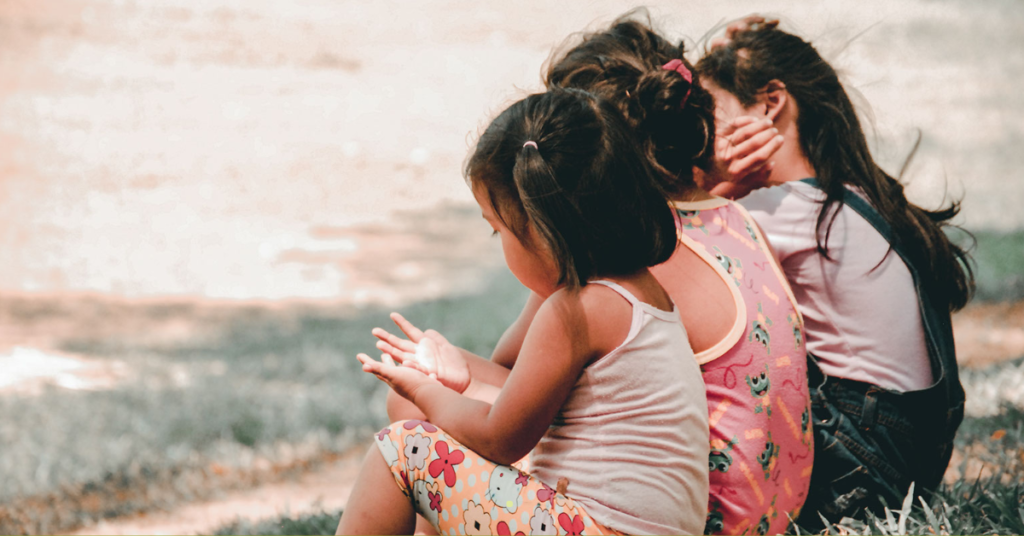
Support a grieving child
Our Donor Family Aftercare team often receives questions from family members about supporting children and teenagers following the death of a loved one. It can be very difficult and overwhelming to think about talking to a child about death, especially when the person who died was close to you both. Many adults worry that they won’t have the right thing to say. It is helpful to remember that children value your truthful explanation of what has happened, and your efforts show that you are willing to talk about even the most difficult of things. Below are some tips for supporting your grieving child.
Listen. How are you feeling?
Listen to your child and reflect back on what they are feeling to help validate those feelings and help them feel more comfortable coming to you in the future. Often, the best way to respond to a child is to repeat what you heard them say. For example, “You really miss your brother, especially when we make trips to the playground.” Listening to children, without jumping in to try to fix anything or make it better, is one of the best ways to help them feel heard and supported. Create regular opportunities for children to talk about how they are feeling. One way to do this is to create a place in your home (a whiteboard or sticky notes on the fridge work great!) where your child can write down a quick note about how they are feeling. Check in with your child at the end of the day, or week, to give them the chance to talk about what was on their mind.

Be honest and direct
Even though it can be difficult, being honest about a loved one’s death is the first step in supporting your grieving child. Left unsaid, children often have many misconceptions about death, their thoughts and ideas may be far more worrisome if not addressed openly. Find a quiet and comfortable place to speak with your child. Start with a short, simple explanation about what happened. Avoid euphemisms such as “passed away” or ”went to a better place,” as these can lead to more confusion. For example, you might say “Honey, I have some sad news to share; your grandmother died. Her heart stopped working and the doctors were not able to fix it.” From here, let your child guide the conversation with their questions.
It’s also important to note that younger children may come back to the topic of how their loved one died repeatedly over time, as they work to process what happened. Be patient, and don’t be afraid to say, “I don’t know, but we can try and find the answer together.”
Give children opportunities to express themselves creatively
Oftentimes children are overwhelmed by the new emotions they experience after the death of a loved one. Some children will express themselves through talking, while some may need other outlets for their grief. You can give your child opportunities to express themselves and their feelings in several ways. Some things to try might be to draw a picture of a favorite memory of their loved one, write a letter to their loved one, play out what happened when their loved one died, or engage in physical activity.
Provide reassurance
After the death of a loved one, children may worry about their own safety and the safety of their remaining parents or caregivers. Remind your child regularly that they are loved and that you are there for them.
You can say, “Mommy is sad and misses daddy, but I am here for you, and we will get through this together.”
Create new traditions and rituals as a family
Holidays and birthdays can feel daunting after the death of a loved one. Take these days as an opportunity to talk with your child about how they’d like to approach those days as a family. Reassure them that it’s okay to have a number of feelings on these special days, which may range from excitement to sadness. Consider with them ways to incorporate the memory of their loved one, and talk about what traditions they might want to keep, or add to that special day.
Take care of yourself
Find ways to take care of yourself, so that you can be there for the grieving child in your life. Meet your basic needs — get enough sleep, eat a healthy diet and exercise on a regular basis, and if you need to, reach out to your primary care provider or insurance provider to find a grief therapist in your area.
Join us Sept. 22 for an online learning opportunity!
For more information and to take part in a conversation about grieving children and how to help them cope, please join us on Wednesday, Sept. 22 at 5 p.m. (PDT) for an evening of learning. The first 45 minutes will be dedicated to understanding a child’s grief process and ways to help them cope, followed by an interactive activity with the children who join us for the webinar. The information provided is aimed at school-aged children, ages 5 to 12.
Please register online by Monday, Sept. 13 by clicking here, so we know who will be joining us.
As always, please don’t hesitate to reach out to our Donor Family Aftercare team directly at (425) 201-6600 with any questions.





